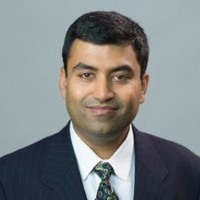By David Snowball
The phenomenon of carefully, continuously engineered noise and distraction is neither new nor benign. Each year for the past quarter century, I’ve ended the last lecture of my Propaganda in the 20th Century course with a reading from Milton Mayer, They Thought They Were Free: The Germans, 1933-45 (University of Chicago Press, 1955).
Mayer, an American political scientist, traveled to Germany in the early 1950s to speak with German Nazis. He was dissatisfied by the existing analyses of how Nazism came to be, and hoped that intimate interviews with ten Germans who became Nazis might help him come to understand.
This excerpt comes from Chapter 13, a discussion by a university professor.
“What happened here was the gradual habituation of the people, little by little, to being governed by surprise; to receiving decisions deliberated in secret; to believing that the situation was so complicated that the government had to act on information which the people could not understand, or so dangerous that, even if the people could understand it, it could not be released because of national security. And their sense of identification with Hitler, their trust in him, made it easier to widen this gap and reassured those who would otherwise have worried about it.
“This separation of government from people, this widening of the gap, took place so gradually and so insensibly, each step disguised (perhaps not even intentionally) as a temporary emergency measure or associated with true patriotic allegiance or with real social purposes. And all the crises and reforms (real reforms, too) so occupied the people that they did not see the slow motion underneath, of the whole process of government growing remoter and remoter. . .
“The dictatorship, and the whole process of its coming into being was, above all diverting. It provided an excuse not to think for people who did not want to think anyway. I do not speak of your ‘little men,’ your baker and so on; I speak of my colleagues and myself, learned men, mind you. Most of us did not want to think about fundamental things and never had. There was no need to. Nazism gave us some dreadful, fundamental things to think about — we were decent people – and kept us so busy with continuous changes and ‘crises’ and so fascinated, yes, fascinated, by the machinations of ‘national enemies,’ without and within, that we had no time to think about these dreadful things that were growing, little by little, all around us. Unconsciously, I suppose, we were grateful. Who wants to think?
“To live in the process is absolutely not to be able to notice it – please try to believe me – unless one has a much greater degree of political awareness, acuity, than most of us had ever had occasion to develop. Each step was so small, so inconsequential, so well explained or, on occasion, ‘regretted,’ that, unless one were detached from the whole process from the beginning, unless one understood what the whole thing was in principle, what all these ‘little measures’ that no ‘patriotic German’ could resent must some day lead to, one no more saw it developing from day to day than a farmer sees the corn growing. One day it is over his head. . .”
My students and I talk about the prospect that “bad stuff” – policies and the propaganda or media strategies that enable them – don’t just appear. They grow; they grow within us, fed by our uncertainty, tolerance and exhaustion. The essential tool, I argue, for confronting great injustice is to recognize and reject daily injustice: don’t tolerate demeaning comments, even when – perhaps especially when – they’re made by your friends. Don’t ignore the stranger in need. Don’t go for the cheap laugh. Don’t shake your heads and just walk away. Do today the things that will make you, fifty years hence, look back on with pride. Do today the things that will give you a decent answer to your child’s someday question, “oh, no! Well, what did you do about it, dad?”
 Who will be the NFL MVP? The money is on Lamar Jackson of the Baltimore Ravens, declared “undeniably one of the most electric players in the league.” The 27-year-old had a passer rating of 102.7 with 3,678 yards, 24 touchdowns against seven interceptions, and played in all 16 games. He was magical. (At least until he faced the Steelers against whom he sports a 1-3 record or got to the playoffs.) For his accomplishments, he earned Continue reading
Who will be the NFL MVP? The money is on Lamar Jackson of the Baltimore Ravens, declared “undeniably one of the most electric players in the league.” The 27-year-old had a passer rating of 102.7 with 3,678 yards, 24 touchdowns against seven interceptions, and played in all 16 games. He was magical. (At least until he faced the Steelers against whom he sports a 1-3 record or got to the playoffs.) For his accomplishments, he earned Continue reading 
